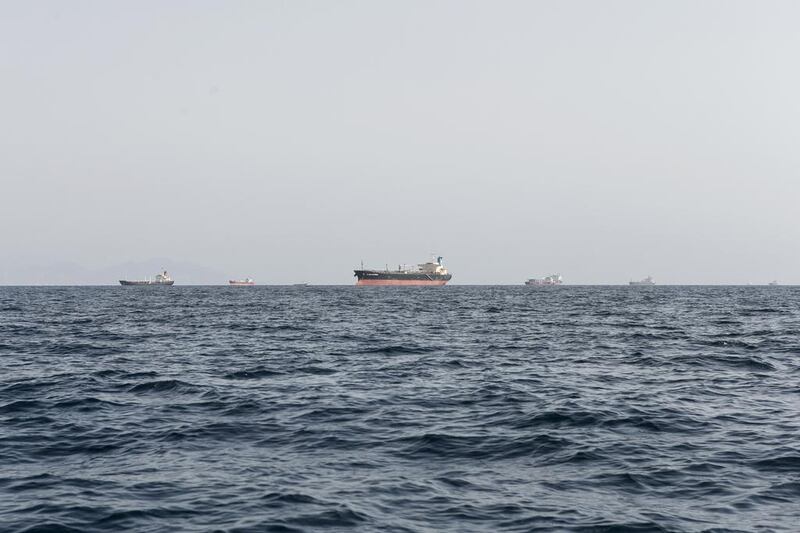Fitch Ratings has once again maintained Abu Dhabi government’s AA investment grade, citing its ability to weather weaker oil prices, robust foreign sovereign assets, small budget deficit and strong GDP growth.
The outlook on the emirate’s long-term foreign and local currency issuer default ratings and senior unsecured foreign and local currency bonds were rated AA and stable.
The last rating from Fitch in February also affirmed Abu Dhabi’s AA grade.
The ratings agency estimated Abu Dhabi’s real GDP growth at 5.1 per cent last year. However, it did not provide estimates for this year.
The ratings mean that there is no fundamental change in the borrowing landscape for Abu Dhabi.
“The ratings infer that the borrowing costs for Abu Dhabi sovereign are not going to be impacted, and the strengthening of the US dollar is more likely to impact Dubai’s attractiveness for capital flows in real estate and tourism and foreign direct investment,” said Dima Jardaneh, the director and senior economist for EFG-Hermes.
“Abu Dhabi is more impacted by oil-related revenue flows and its financial position is very strong due to the large external financial reserves.”
Abu Dhabi’s foreign sovereign assets are the second-strongest in the region after Kuwait.
“At a time when the rest of the world struggles with too much debt and insufficient growth, Abu Dhabi would act as a safety haven to investors,” said Soner Guney, a fixed income fund manager at National Bank of Abu Dhabi’s global asset management group. “[It] is in a position to continue implementing its economic growth and diversification strategy with much leeway.”
The UAE’s country ceiling, which applies to Abu Dhabi and Ras Al Khaimah, was affirmed at AA+. It refers to the ease with which foreigners can repatriate money from a country.
Brent crude is steady after hitting a one-year low of US$46.59 on January 13. The commodity closed at $58.73 per barrel on Friday. It was $108.28 a year ago.
Stocks have rebounded since December, when oil prices seemed to be in freefall. The Abu Dhabi Securities Exchange General Index is up 20 per cent since a 12-month low on December 12 and the Dubai Financial Market General Index is up 29 per cent in the same period.
In February, Standard & Poor’s affirmed AA long-term and A-1+ short-term foreign and local currency sovereign credit ratings for Abu Dhabi, confirming a stable outlook.
Moody’s said the Abu Dhabi government’s long-term rating was Aa2 in March.
"The market would not have expected a ratings change," Ms Jardaneh said. "The current low oil prices environment had already been reviewed by most ratings agencies anyway. That means whatever impact the lower oil prices would have on the Abu Dhabi economy had already been factored into the ratings."
In its report, Fitch said Abu Dhabi’s sovereign foreign assets rose to 181 per cent of GDP at the end of last year compared with direct sovereign external debt of just 0.6 per cent of GDP. Sovereign net foreign assets are forecast to drop marginally to 178 per cent of GDP at the end of next year.
This year’s budget deficit is expected to be lower as spending cuts are expected to hold sway.
“Spending was cut by one-third and on a pro-rata basis for the first four months spending was only 3.7 per cent above budget,” Fitch said. Next year, the budget is expected to return to surplus as Fitch estimates an average price of Brent crude at $75 per barrel, up from $65 this year.
Abu Dhabi’s oil revenues account for about 50 per cent of GDP and about 85 per cent of fiscal and external revenues. But low production costs and expansion of production capacity and downstream facilities are expected to make the economy resilient further.
That said, Fitch has warned that human development indicators such as accountability are below the median, economy policymaking tools at the federal level are weak, and transparency is not up to the mark.
Inflation woes also affect the emirate, owing to the real estate cycles. In May, rents pushed inflation to around a six-year high of 5.3 per cent, according to Fitch.
Since the inflationary trends are driven by rents and higher utility costs rather than internal monetary pressures, it is not a policy issue and is likely to peter out, Ms Jardaneh said.
ssahoo@thenational.ae
Follow The National's Business section on Twitter





